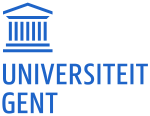The consortium of this project consists of 6 partners.
Artevelde University College, Belgium

Artevelde University College Ghent (Arteveldehogeschool, AHS), member of the Ghent University Association (AU GENT) is one of Flanders’ largest university colleges with almost 14000 students and 1400 staff members. It offers study programs in the domains of educator training, business and graphic education, health care and social work. In total the university college offers 18 Bachelor programs, 5 Advanced Bachelor programs and 24 Postgraduate programs. The university college educates professionals whose creativity, innovative way of thinking and sense of entrepreneurship cross borders. AHS aspires after excellence and durability and is stimulated by its collaborators to do so. It is also known for its excellent student-oriented services, education and counseling.
AHS has experience and expertise in training educators to increase their ICT-skills when they want to create courses using digital tools. The office of educational development and internationalisation developed – in co-creation with several educational institutions in Flanders – two training modules: “Digital Didactics” and “Blended Learning: A step-by-step guide”. These initiatives aim at training educators in higher education institutions (HEI) so they can optimise their educational methods, their learning activities and the way they assess their students. This makes the learning environment (both online  and offline) more student-centered, more challenging and powerful than ever before.
Furthermore, AHS is highly experienced in educator training and professional development, with a focus on co-creation with the professional field. Lifelong learning is a professional must for all stakeholders in education. The educator training department within AHS is aware of this and created its own training activities for in-service educators. The department Partners in Learning (www.partnersinleren.be) offers professionalisation and consultancy sessions in a wide area of subjects related to education and educator training. Educators and students can take workshops and courses from the program, or can ask for tailor-made workshops and coaching sessions.
Ljudska Univerza Velenje, Slovenia
![]()
Ljudska Univerza Velenje (LUV) is a public non-profit adult education institution providing education and support to various target groups. LUV takes an active part in the regional community by improving the educational structure of the population, by motivating and informing the members of the community and by involving them in the educational programs. LUV boasts a 57 years tradition in the provision of expert knowledge, quality and a friendly attitude towards our participants, which without doubt contributes to the fact that each school year more than 4000 participants take part in various educational programs.
LUV offers various programs to different target groups. It works with over 100 educators with different levels of experience using ICT in educational processes. Because of the increasing need for more interactive, freely available and adapting educational materials LUV is getting involved in EU projects developing online learning tools and using modern technologies. With the current learning environment and increasing need for changes the proposal would support LUV in developing modern and innovative learning approaches that would support and encourage adult learners and educators to be more active in co-creating educational materials and tools. Because of the varied set of students who attend LUV courses, we provide an ideal setting to explore co-creation by students with different backgrounds and prior work experience as well as co-creation with the professional field.
National Training Centre, Bulgaria

The National Training Centre (NTC-BG) is a privately owned training organisation established in 1999. It is actively engaged in research and development of training innovation. It has two principal divisions, closely interlinked with each other, one entrusted with vocational training at the national level, and the other one dealing with international research and projects.
The training arm is well-known under the name of the Adam Smith College of Management (ASCM) and is specialised in adult business training, offering two training routes: one for people with economics/business background and one for people without. Both programs are authored and the product of systematic in-house continuous development. The ASCM is managing attended, online, and blended learning routines, and is also reputed for its uniquely structured training environment. All training content is also delivered via an online e-learning platform, and the content is being regularly updated and expanded.
NTC-BG has an active, informal partner network of schools around the country, ranging from primary to upper-secondary, and including vocational schools. This network works together to pilot projects of mutual interest – such issues include project-based learning, project-based assessment, cross-subject lessons, key competences, IT competence-based assessment and certification, baseline and progression testing and analysis of big data.
NTC-BG is also very active in several domains which require skills in bringing together players from government institutions, local businesses, municipalities and non-profit organisations. This is particularly true for initiatives related to vocational training of people with disabilities, but the partnership/networking model can be expanded for other areas and topics.
NTC-BG has been monitoring the development of e-learning platforms and interactive instruments since 2004, and has developed expertise, both for itself and for consulting others, in selecting and customising the most appropriate e-learning solution for a specific set of needs and target audiences.
Jaitek Technology and Training, Spain
![]() Jaitek Technology and Training is a company, specialised in ICT training together with technical development and implementation in educational institutions (of all educational levels) throughout Spain, both in presence and e-learning. It has participated in national ICT projects and has successfully implemented interconnectivity of devices in school environments in the most effective way.
Jaitek Technology and Training is a company, specialised in ICT training together with technical development and implementation in educational institutions (of all educational levels) throughout Spain, both in presence and e-learning. It has participated in national ICT projects and has successfully implemented interconnectivity of devices in school environments in the most effective way.
Its mission is not only the adoption of technology, but also cultivating the methodology required to make this technology really effective in educational processes. Jaitek has been working with schools all across Spain in the process of changing methodologies with the potential help of ICT tools for the last 10 years. They also have extensive expertise in web 2.0 tools and have started to train educators in using them (Prezi, VideoScribe, Camtasia, PowToon, …) to create resources for methodologies such as project-based learning and flipped classroom.
Jaitek has a longstanding experience in management of educational projects involving both methodologies and technologies. Concerning education methodologies, they work with active methodologies (Multiple Intelligences, Cooperative, Project-based Learning, …) and reinforce these with the use of technology (web platforms such as Moodle, Elgg, Mahara, Google Apps, …). Concerning education technology they are experienced in implementing a variety of online – often open source – software platforms.
Foundation Knowledge Centre Pro Work, The Netherlands
Foundation Knowledge Centre Pro Work was established in the Netherlands as a Centre of Excellence as a direct result of the experience and activities in several national and EU projects. Pro Work promotes the career development of people with (significant) distance to the labour market, skilled workers and others who need coaching, training and counselling in a wide variety of sectors and topics, both at the national and international level. Pro Work operates in sectors like education, IT, sustainability, environment, economy, health care and technology associated with innovations, sheltered employment, entrepreneurship, talent development, unemployment and generation gaps.
The projects that Pro Work participates in vary from the national to the international level and differ in size, number of participating parties, types of partners, structure, collaboration, subject and purpose. Ultimately, all projects focus on the so-called ‘Corporate Social Responsibility’, because they have in common to improve the quality of life in many areas. From e.g. reducing the distance to the labour market, creating learning materials on computing for every educational level, inclusion, diversity management, improving sustainability and reducing the generation gap. Pro Work has a long cooperation with umbrella organisations at the national and international level for social and employment reintegration. Pro Work developed a lot of tools, methods, instruments and learning materials for these target groups.
In addition to the (international) projects that Pro Work is involved in, there is a wide array of other activities, which the foundation carries out within the educational sector and/or within European subsidised programs. These activities vary greatly in subject, but they all have in common that they are active within the educational sector in the Netherlands and Europe, where innovation, mobility, collaboration and quality are the keywords.
Pro Work has a vast experience in national and international projects (both inside and outside the EU). The staff involved in projects is well qualified and fit for its tasks in the project. Staff from Pro Work that will be involved in the project includes education experts, consultants, researchers, technical and administrative personnel. More information? www.pro-work.nl
Ghent University, Belgium
 Ghent University (UGent) was established in 1817 and has 11 faculties, which offer high quality and research-based educational programs in almost each scientific discipline. UGent scores high in the international rankings: no 62 in the Shanghai ranking and no 118 in the Times Higher Education ranking. Currently there are about 9000 staff members and over 42000 students. More than 11% of the student population is international.
Ghent University (UGent) was established in 1817 and has 11 faculties, which offer high quality and research-based educational programs in almost each scientific discipline. UGent scores high in the international rankings: no 62 in the Shanghai ranking and no 118 in the Times Higher Education ranking. Currently there are about 9000 staff members and over 42000 students. More than 11% of the student population is international.
As an institution that highly values participation from a wide variety of stakeholders, UGent organised the Innoversity Challenge in 2016 . This initiative gave a wide set of stakeholders (including students, researchers, and staff members across all faculties of the university) the opportunity to share their ideas on the future of education and to team up to make their vision reality. As a result of this competition a number of students, researchers and staff members have formed the COCOON collective (CO-creation and COmmunication ONIine). This collaboration between various knowledge fields (such as web development, educational research, experts in intellectual property rights) has without a doubt provided us with the necessary melting pot of ideas and skills to tackle the complex challenge of course co-creation.
In a series of pilot courses, the COCOON collective has already reached out to local partners such as AHS and the Vrije Universiteit Brussel (VUB), forming a knowledge network on co-creation of course content at the Flemish level. With this Erasmus+ project the collective aims to extend its network at the European level, allowing us to investigate co-creation in a variety of educational settings and with various groups of students, fellow educators and experts in the professional field. In addition, the COCOS project allows us to draw input from an international set of co-creators, helping us to achieve our goal of course co-creation on a more ambitious level.
